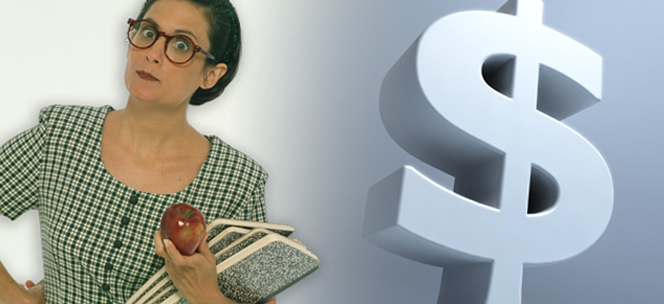Alberta teachers should be ready for a long strike

Alberta’s striking teachers should buy some snow boots for the picket lines, because it looks like Premier Danielle Smith is digging in her heels and this could take a while.
Being paid $100,000 a year to teach school sounds plenty fair to plenty of Albertans and the province does not have extra money to spend.
So Smith seems ready for the long-haul.
The premier quickly announced the government is paying parents their money back during the strike.
Less than 12 hours after the Alberta Teachers Association voted 89.5 per cent to reject the government’s contract offer, Smith told parents they would get $30 per day, per student under 12 years old for the duration of the strike.
Parents are paying for schools to be open and teachers to do their jobs, via their taxes. If schools are closed and teachers refuse to do their jobs, it’s fair for parents to get a refund.
More than 700,000 children go to government schools in Alberta. When 51,000 teachers go on strike, it disrupts the lives of hundreds of thousands of families.
This is the first time Alberta teachers have gone on strike in 23 years.
Teachers were reportedly offered a 12 per cent pay raise over four years. Plus, the province agreed to hire 3,000 new teachers plus 1,500 educational assistants.
“It was the highest general wage increase proposed in over a decade,” Smith said. “A category five teacher at the top of the pay grid would make $114,800 a year in 2027. That’s roughly $107,000 after provincial taxes. That’s the best in Western Canada, in a province with lower taxes and no sales taxes.”
Documents show if the offer had been accepted, a rookie teacher would start with a salary of about $71,000.
That happens to be the average salary for workers in Alberta. Keep in mind, an average salary calculation includes everyone from rocket scientists and brain surgeons to people starting their first fast food job.
So, a brand new teacher would start at Alberta’s average salary. Plus benefits, lots of time off and very strong job security.
Under the rejected deal, teachers with seven years on the job would be paid about $101,000 per year.
That kind of money was reportedly on the table, plus the government promised to hire 4,500 new teachers and assistants
But that deal still got turned down by 89.5 per cent, so Albertans are left wondering what teachers really want.
Smith says there’s no more money to be offered.
The CTF would have told the premier the recent offer was too expensive because Alberta’s debt is still projected to be $84.3 billion at the end of this fiscal year. Debt interest charges are costing taxpayers $3 billion this year.
Is $100,000 per year not enough for teaching grade seven social studies?
Being the highest paid teachers in Western Canada isn’t enough?
Perhaps the union bosses should say where extra money should come from and how high they want that number to go?
Every extra dollar means more debt plus interest charges.
That’s new debt students will have to pay in the future.
NDP leader Naheed Nenshi says Smith “provoked” the strike.
The numbers tell a different story.
This year, Alberta taxpayers are projected to spend $10.4 billion on K-12 education.
The year before that, the bill was $9.2 billion.
The year before that, taxpayers spent $8.8 billion on education.
The year before that, taxpayers spent $8.3 billion on education.
Increasing spending on education is an odd way to provoke a fight with teachers.
Locking students out of schools is no joke. Grade 12 students are missing experiences of their graduation year. Little kids are suddenly in brand new childcare situations.
Maybe some within the teachers union are ready to walk the picket lines until November, even though the CBC reports teachers won’t be getting strike pay.
But even after the snow starts falling, there still won’t be any extra cash around as the province continues to pay billions for debt interest charges.